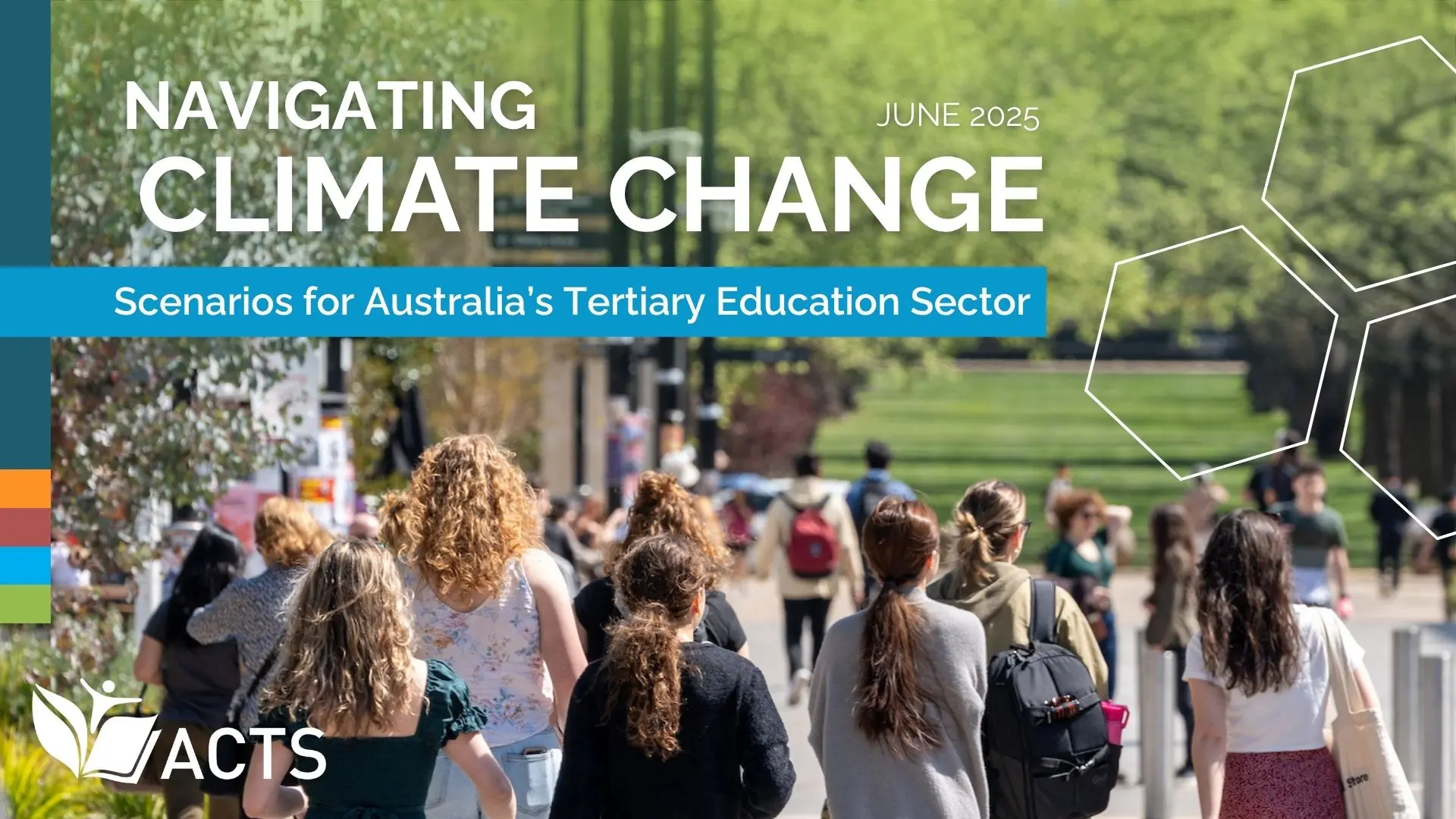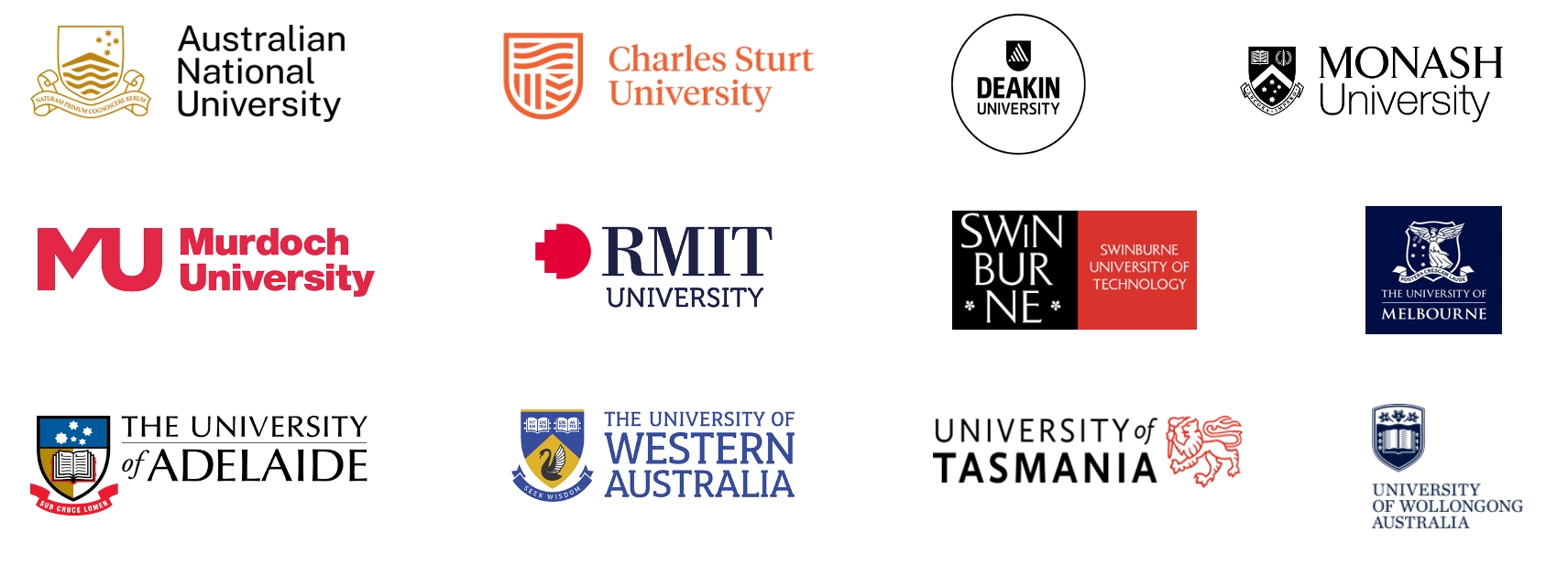NEW Report released June 2025!
Navigating Climate Change
Navigating Climate Change – Scenarios for Australia’s Tertiary Education Sector offers a practical tool for tertiary education institutions to navigate the growing challenges of climate change.
A new report published by ACTS offers a practical tool for tertiary education institutions to navigate the growing challenges of climate change. Navigating Climate Change – Scenarios for Australia’s Tertiary Education Sector presents four plausible futures to support strategic planning, climate risk disclosure and management and institutional adaptation.
The four scenarios are designed to help institutions assess potential risks and uncertainties rather than act as predictions for the future. Each scenario explores a different global warming pathway and government response, from low to high emissions and from a short-term focus on immediate issues to a long-term focus on future challenges. They also consider the intersection of climate change with other forces such as technological disruption, demographic shifts and geopolitical instability, and how these may reshape Australia’s tertiary education sector.
The report highlights the critical role of tertiary institutions in leading Australia’s climate response. Universities and vocational institutions are uniquely positioned to equip future generations with the resilience, skills and creativity needed to adapt and thrive. They can also advance strategic research that delivers environmental, technological and social solutions, attracting new streams of research funding. Importantly, they can engage communities, support local adaptation efforts and partner with governments in responding to extreme weather events and climate disruptions.
The report comes at a time of growing national and international scrutiny of climate-related risk, with new reporting requirements, such as mandatory climate-related financial disclosures on the horizon. The scenarios offer a timely resource to help institutions identify material risks and embed climate foresight into decision-making, inviting those in strategic roles to reflect on possible disruptions and to respond with foresight and purpose.
Developed through a funded collaboration of 12 Australian universities, the report adapts a framework created by the Tertiary Education Sector Climate Futures Group in Aotearoa New Zealand. Their 2023 project, Climate Change Scenarios for the Aotearoa New Zealand Tertiary Education Sector, brought all tertiary education institutions in New Zealand together to explore potential climate change impacts to the sector through to 2100.
Building on that foundation and led by the ACTS Climate Scenarios Working Group, the process engaged more than 150 stakeholders from across the sector. It explored how climate change may impact Australian tertiary education in the 2030s, 2060s and 2090s, across research, teaching, operations, students, staff and the role of universities, revealing shared challenges such as more frequent extreme weather events, infrastructure strain, and economic disruption.
The resulting publication of Navigating Climate Change marks the start of a broader process. ACTS invites all tertiary institutions to explore the scenarios and use them as a strategic tool to assess climate risks and opportunities. The report includes a five-step approach to support institutions in applying the scenarios and integrating climate adaptation into their planning and disclosure frameworks. Climate adaptation is a journey not a destination, and this report provides a constructive platform to begin mapping a proactive and resilient institutional response.
WANT TO SEE MORE WORK LIKE THIS?
This initiative was made possible through the leadership and collaboration of 12 Australian universities committed to climate resilience and sector-wide planning. You can help make more work like this possible by donating to ACTS.
Your support enables ACTS to continue fostering cross-institutional partnerships, developing practical tools, and empowering the tertiary sector to lead meaningful, coordinated responses to climate change.



